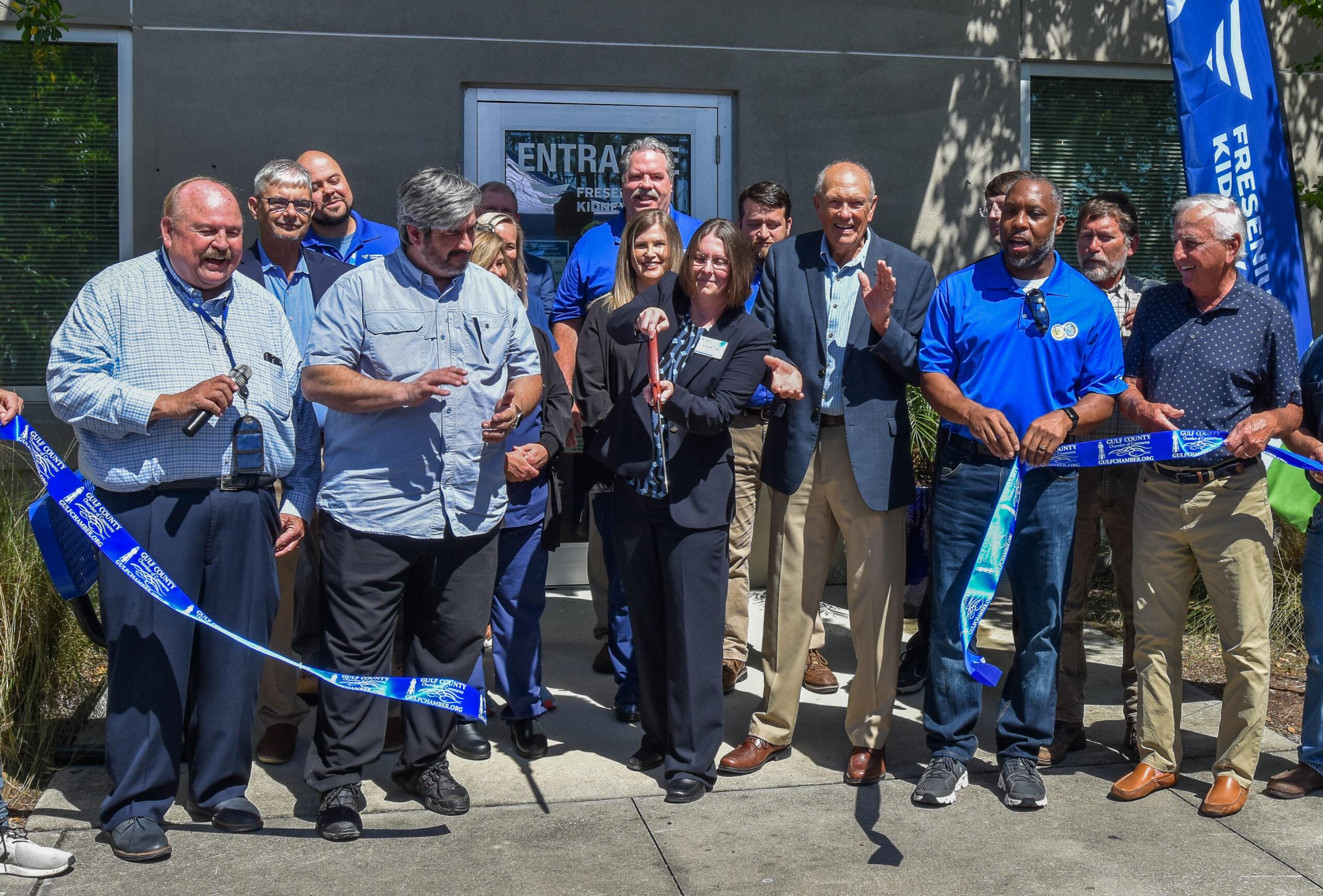Gulf seeks kidney dialysis help from Franklin
Following a report that shows roughly one-third of the dialysis patients being seen by Fresenius Kidney Care in Port St. Joe are from their county, Franklin County commissioners are again being asked to contribute to the annual subsidy that Gulf County spends to keep the facility here.
Last week, Jim McKnight, director of the Gulf County Economic Development Coalition, delivered a report on the first-year numbers for the kidney dialysis provider to Franklin County Commission Chairman Ricky Jones.
What it showed was that in its first year of operation, the facility provided services to 59 patients. Of these, 38 were people either staying at a vacation rental or in their second home and the largest chunk came either from Georgia, other places in Florida, or North Carolina or Wisconsin, with the remainder scattered among 10 other states.
While it could not be determined in which county these non-local patients were staying, it seems likely they follow a similar breakdown as the numbers for local residents.
Of the 21 local patients seen by Fresenius last year, 71 percent live in Gulf and 29 percent in Franklin, based on a broad view over the entire year.
A snapshot of patients from mid-March, show an even higher number, 39 percent, of the patient load living in Franklin, from Apalachicola, Eastpoint and St. George Island. The Gulf County patients live in all portions of the county, but mostly from Port St. Joe, the Cape and Indian Pass.
A key reason that Franklin County numbers are likely to keep increasing is that Capital Health Plan, which covers a large number of the Franklin County insured population, recently announced that because Fresenius is the closest dialysis facility to the county, it would cover those patients. In most other cases, CHP does not extend in-network coverage west of the Gulf-Franklin county line.
Jones said he planned to bring up the Fresenius report for discussion at the Tuesday, April 16 commission meeting, as well as the fact that Gulf is requesting Franklin pitch in $15,000 annually towards the $100,000 that Gulf is giving Fresenius annually over five years.
“I don’t think it’s a big ask,” said Jones. “We know Franklin County residents are actually using the facility, and CHP covers people, as it’s the closest facility for dialysis.
“I will mention it to the board how they want to help facilitate funds to make sure we keep the facility,” he said. “It takes funds to run it.”
In February 2022, Franklin County commissioners accepted a recommendation from the Weems Memorial Hospital board not to contribute up to $25,000 per year, for each of the next five years, to assist with Gulf’s subsidy.
County Attorney Michael Shuler advised at that time that the health care trust fund – funded by a 2007 ballot measure that enacted a one-cent healthcare sales tax – did not allow for funds to be spent out of the county, limiting them to constructing a medical clinic in Carrabelle, upgrading the ambulance service and funding the construction of a new public hospital facility to replace Weems.
Shuler advised that commissioners could cover the subsidy by using non-surtax revenues from Weems, drawing on ad valorem tax revenues or initiating a process to amend the two interlocal agreements with Apalachicola and Carrabelle.
In 2022, Weems’ board discussed bringing a mobile dialysis unit onsite in Apalachicola, but such a program has not come to fruition.
“We need to be helping our residents out with health care,” said Jones. “We will have time to do our homework.”


Meet the Editor
David Adlerstein, The Apalachicola Times’ digital editor, started with the news outlet in January 2002 as a reporter.
Prior to then, David Adlerstein began as a newspaperman with a small Boston weekly, after graduating magna cum laude from Brandeis University in Waltham, Massachusetts. He later edited the weekly Bellville Times, and as business reporter for the daily Marion Star, both not far from his hometown of Columbus, Ohio.
In 1995, he moved to South Florida, and worked as a business reporter and editor of Medical Business newspaper. In Jan. 2002, he began with the Apalachicola Times, first as reporter and later as editor, and in Oct. 2020, also began editing the Port St. Joe Star.